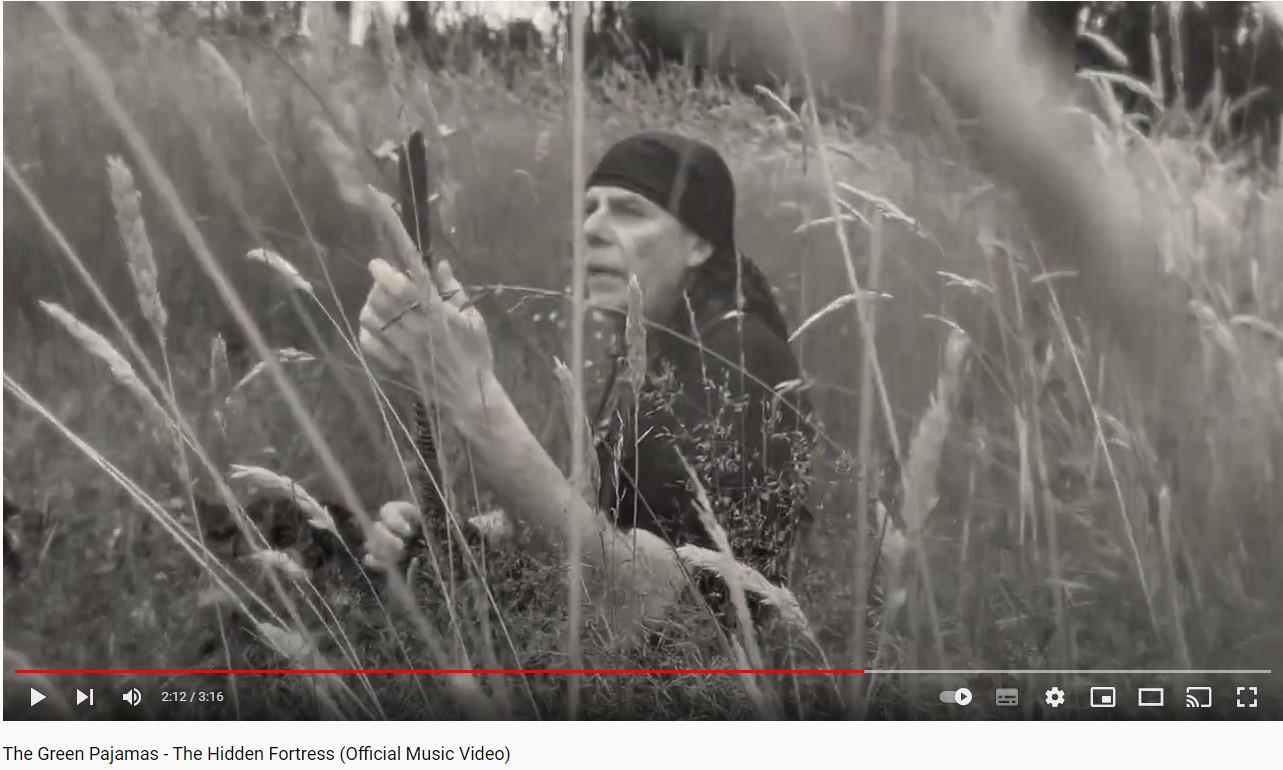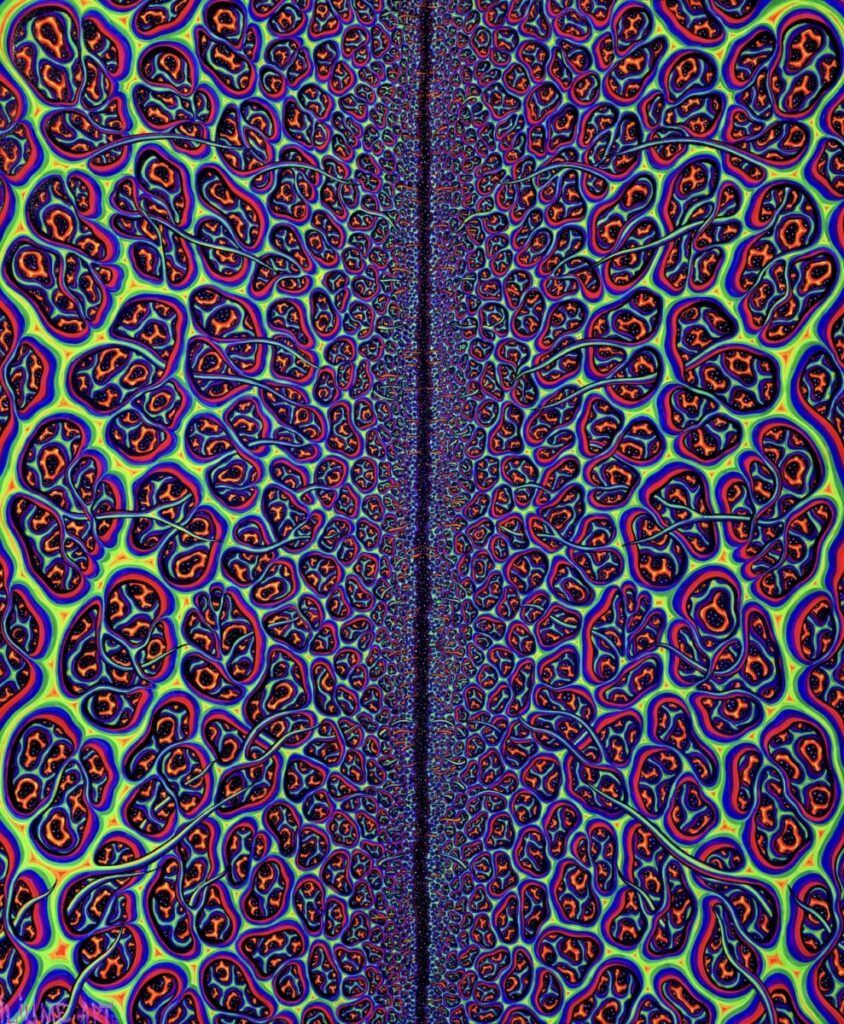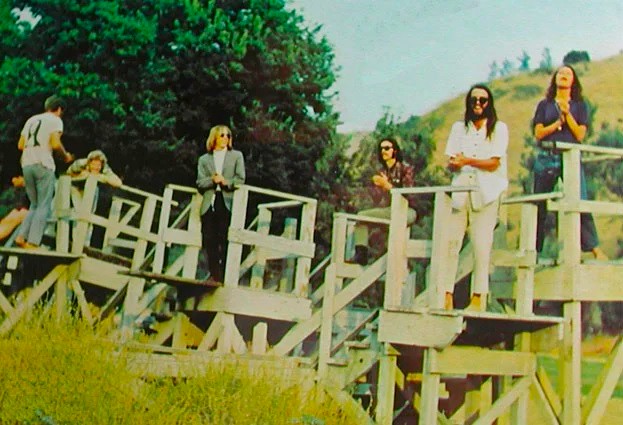The Green Pajamas: Forever for a Little While–Album Review
The Green Pajamas: Forever for a Little While–Album Review
In a world of unpredictability, it is, at times, safest to return inward to ourselves. The place might be full of demons, but at least they’re demons we know. Forever for a Little While is the newest album by Seattle-based band The Green Pajamas—fronted by Jeff Kelly, the album’s primary composer (alongside Eric Lichter, Joe Ross, and Laura Weller, other pajamas). Coming in at an approximate hour of nineteen tracks, Forever for a Little While is steeped in themes of love, yearning, self-reflection, the fantastical, and the fatal. Women appear and disappear as if they were simply ghosts, and we ride through a variety of spectral landscapes, visiting a Hidden Fortress (of the mind?) and a Martian Landscape told so familiarly to us it could be somewhere on Earth.
The album’s chief strength, aside from its catchy 90s-sounding radio rockers and sonically haunting ballads, is its variety, which displays Kelly’s range as a songwriter.
At its core, Forever for a Little While is a concept album, covering everything from mid-pandemic life to, in Kelly’s words, “the planets, Persian music, Erik Satie, and Japanese films by Akira Kurosawa”. It presents less of a unified narrative than a cohesive journey of sound, characters and scenes painted in broad brushstrokes. But it certainly is conceptual, from its momentous orchestral opening— “Theme for a World Neurotic”—to a sampled piano track—”Gnossiennes No. 3” by French composer Erik Satie—along with recurring melodies and characters, one named Princess Misa, to whom the narrator promises everything he owns, only to eventually be tripped up by his own bluff, for really, he has nothing to give.
The album’s chief strength, aside from its catchy 90s-sounding radio rockers and sonically haunting ballads, is its variety, which displays Kelly’s range as a songwriter. We move from waltzes, to industrial psychedelia, to upbeat rock, as he longs for memories and women past, urges them to stay, mourns their absence, considers the world’s end and perhaps finding new worlds entirely. “Under the Martian Sun/The Red Desert” sounds uncannily like Neil Young’s “After the Gold Rush”; the track is a plaintive story supported by a lone, stark piano. The character overlooks a desert scene, thinks of his lover’s father—an interesting note—and longs to leave behind the confines of “science books and maps’ and take the lover out “for a ride past the dunes where the palm trees softly sway”. Environmentally musing, the singer wants nothing more than to move outside the confining bounds of what is defined and charted and go explore the unknown. Which begs the question: is this a futuristic time when Mars has been “cartographized” or simply a comment on the sometimes alien-feeling of our own world? Or maybe, it’s none of these things at all, and simply a pretty song to listen to.
Tracks “Princess Misa” and “Princess Misa II” evoke the industrial sounds of Pink Floyd’s “Welcome to the Machine”, with Misa II concluding in a positively Gilmourian solo: a synth-heavy reprise gives way to a sailing lead guitar that fades off into a distant conclusion. Again, who is Princess Misa? She tells her suitor that she was “hired, I’m told, for my eyes”. Is she actually a princess? A prostitute? An alluring woman unable to escape her physicality?
We visit the irrigated deserts of Mars, a Hidden sitar-punctuated Fortress, and befriend women wearing bloodied kimonos. On “Constance Grey”, the narrator, in the face of catastrophe (“the weather girl kneels down to pray”) can do nothing but long for Constance herself, before the world slips into a “constant gray”.
Forever for a Little While falters singularly due to its length. While songs paint a unified ‘conceptual’ theme, the album lacks unified plot and leaves the listener wondering if the one-hour playtime speaks to Kelly’s prolificity as a songwriter or just an inability to discern the albums essentials. We seesaw from somber to upbeat, joyful summer jams to foggy autumnal landscapes as each track changes, and this change grows plodding. It leaves something to be desired, or rather, undesired.
However, the songs themselves are unique in quality, and when the album is good, it is very good. Forever for a Little While concludes with “Joy Ride/Happy Ending”: an initially imperiled track of violence, until, at last, we fade out on waves of synth and organ and quiet strumming guitar, resolved, at rest.
Gallery
Recent Articles

Loading...
A Tale of Crescendo ~ Chapter 7: The Flashback; Chapter 8: The Black Bird
- Bill Kurzenberger




